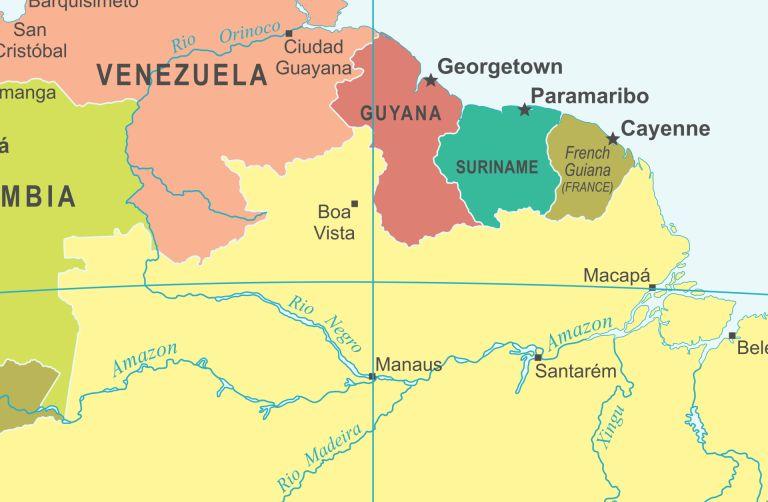Guyana has submitted its Memorial on Jurisdiction in the case brought against the Bolivarian Republic of Venezuela to confirm, in a final and binding judgment, the full legal validity of the arbitral award that established the international boundary between Guyana and Venezuela more than a century ago. The submission was made on Monday, November 19.
In a press statement following the submission, Guyana’s Ministry of Foreign Affairs said the Memorial as filed in accordance with the Order of the Court dated June 19, 2018 that determined it would first resolve the question of the Court’s jurisdiction in light of Venezuela’s refusal to participate in the proceedings based on its claim that the Court lacks jurisdiction.
Guyana’s Memorial shows there is no foundation to Venezuela’s contention that the means of settlement listed in Article 33 of the UN Charter must be selected by the Secretary-General successively, such that the means listed ahead of judicial settlement have to be exhausted before recourse to the Court can be chosen. Nothing in the text of Article IV of the Geneva Agreement, which provides a menu of options, not a predetermined sequence, supports Venezuela’s interpretation. Nor is Venezuela correct in arguing that, as it has recently asserted, the controversy must be resolved exclusively by friendly negotiations, a claim that is belied by the express terms of the Geneva Agreement and contemporaneous statements by the parties during its negotiation and ratification.
Guyana prepared its Memorial bearing in mind the Court’s instruction that it should be informed of all the legal and factual grounds on which the parties rely in the matter of its jurisdiction. Guyana’s submission accordingly sets out how the boundary with Venezuela was established by an arbitral tribunal constituted pursuant to a treaty concluded by Venezuela and Great Britain in 1897. Venezuela accepted this unanimous award, which was rendered by five eminent jurists on 3 October 1899, celebrated its outcome, participated in a joint commission to demarcate the boundary on the ground, and insisted on the award’s strict implementation. Only decades later did Venezuela, in anticipation of Guyana’s independence, cease recognizing the award’s validity and binding nature, using that pretext to lay claim to more than two-thirds of Guyana’s territory.
To ensure a final resolution to the controversy through peaceful means, the Government of British Guiana, Venezuela and the United Kingdom concluded the Geneva Agreement on 17 February 1966. Article IV of that treaty authorizes the Secretary-General of the United Nations to decide which of the means listed in Article 33 of the United Nations Charter – which includes binding adjudication by the International Court of Justice – shall be used to resolve the controversy. In agreeing to Article IV, Venezuela consented to the Court’s jurisdiction in the event the Secretary-General decides that the controversy should be resolved by the Court.
Efforts over more than half-a-century, including a four-year Mixed Commission (1966-1970), a twelve-year moratorium (1970-1982), a seven-year process of consultations on a means of settlement (1983-1990), and a twenty-seven-year Good Offices Process under the UN Secretary-General’s authority (1990-2017), all failed to end the controversy. On 30 January 2018, United Nations Secretary-General António Guterres, acting under the authority bestowed upon him by the Geneva Agreement, chose adjudication by the Court as the means for resolving the controversy with finality. Guyana commenced proceedings before the Court on 29 March 2018 in accordance with the Secretary-General’s decision.
Guyana, the Ministry of Foreign Affairs said, has no doubt that the Court has jurisdiction to resolve the controversy that has plagued its relations with Venezuela and undermined its ability to develop its sovereign territory and natural resources. Guyana expresses its sincere hope that Venezuela will reconsider its refusal to participate in the judicial process that the UN Secretary-General has decided will be the means by which the controversy will be resolved.
Guyana’s representation before the Court is led by its Agent, H.E. Vice President and Minister of Foreign Affairs Carl B. Greenidge, and by its Co-Agents, Sir Shridath Ramphal and Ambassador Audrey Waddell.



